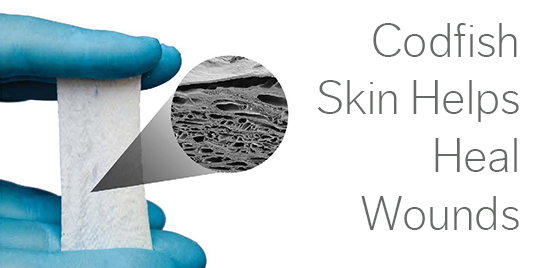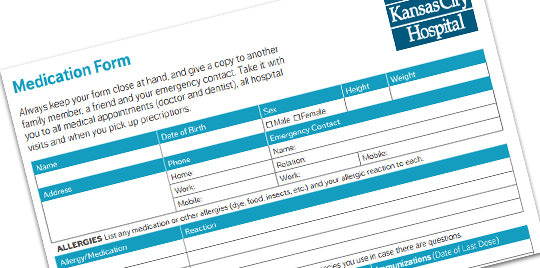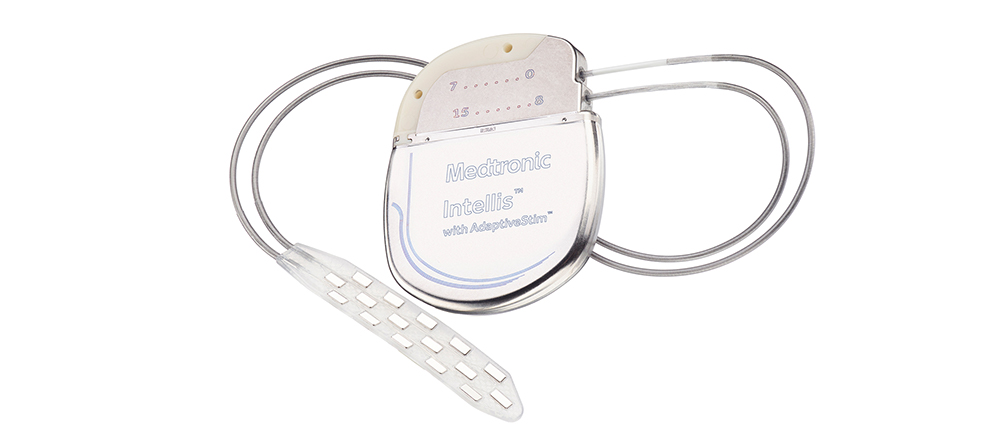
Chronic back or leg pain can keep you from enjoying the activities you love. If pain medication, injections, physical therapy or surgery don’t relieve your pain, spinal cord stimulation may be an option.
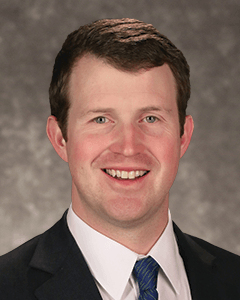 “Although spinal cord stimulation is not a new procedure, recent advances mean we can treat chronic pain with not just low-frequency stimulation but also with high-frequency stimulation,” said Stephen L. Reintjes Jr., MD, a neurosurgeon with Meritas Health Neurosurgery.
“Although spinal cord stimulation is not a new procedure, recent advances mean we can treat chronic pain with not just low-frequency stimulation but also with high-frequency stimulation,” said Stephen L. Reintjes Jr., MD, a neurosurgeon with Meritas Health Neurosurgery.
The procedure requires two stages: a short trial period and long-term treatment.
Trial
If you meet the criteria for spinal cord stimulation, you’ll start with the one-week trial period. A pain medicine doctor guides a needle holding thin, insulated wires into the outer part of the spinal canal. A local anesthetic is used to numb the skin and deeper tissue. There, the doctor directs the wires, which have the electrical contacts, to specific nerves for pain relief. You’ll be awake during this short outpatient procedure, so the doctor can pinpoint treatment with your feedback.
When the wires are in place, the doctor connects them to an external transmitter. You’ll return home with a doctor-programmed hand-held controller that you can fine-tune for how long the stimulation lasts and how intense you want it. The trial period helps you and your doctor decide if the treatment is helpful.
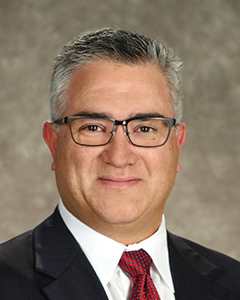 “If a patient’s pain is reduced more than 50%, then we consider the procedure successful,” said Patrick D. Griffith, MD, a pain medicine doctor with NKCH’s Pain Management Clinic who is involved with the spinal cord stimulation procedure.
“If a patient’s pain is reduced more than 50%, then we consider the procedure successful,” said Patrick D. Griffith, MD, a pain medicine doctor with NKCH’s Pain Management Clinic who is involved with the spinal cord stimulation procedure.
Long-Term Treatment
If your trial period is successful, you’ll head into stage two: placement of a permanent device.
Dr. Reintjes Jr. surgically implants leads under the area of the spine called the lamina and a rechargeable transmitter about the size of a pacemaker in your upper backside.
“Patients often find great relief, Dr. Reintjes Jr. said. “They usually know what settings work well from their trial, and we continue to follow those settings.”
Learn more about our pain management and spine care services, including our rehabilitation programs and spinal surgeries.

